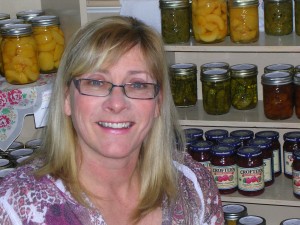 Farm 2.0 is a new project that explores how internet and communication technologies can be used in Canada’s sustainable food movement to optimize traditional agricultural practices, enable effective networks and facilitate policy change.
Farm 2.0 is a new project that explores how internet and communication technologies can be used in Canada’s sustainable food movement to optimize traditional agricultural practices, enable effective networks and facilitate policy change.
Smaller scaled organic and ecological producers are trying to build community around their farms and squeeze out a living in a landscape where farms keep getting bigger, products are more distant, retail is more consolidated and marketing is laden with ‘green washing’. These producers are being supported by ethically-minded consumers, academics and policy-makers. A diverse ecosystem of sustainable food hubs and networks, oriented toward building food systems that are more local, fair and green is coalescing in Canada.
To date, Internet and communication technologies have not figured prominently in forging food system solutions, and the intersection of technology and sustainable food is an under-developed area. One reason for this is that ecological and organic producers have historically favoured low technological, traditional, hands-on and artisanal practices. But Theresa Schumilas, who recently joined the Laurier Centre for Sustainable Food Systems as a Research Associate and Postdoctoral Fellow, thinks that these ‘low tech’ and ‘high tech’ worlds have much in common. An organic farmer herself, Schumilas wonders if there are ways emerging technologies might open up new spaces for us to imagine and realize radically different practices and make shifts to more sustainable food systems.
Theresa is friend-raising and fund-raising to establish a sustainable food and technology ‘hackerspace’ or ‘lab’ that enables connections and collaboration between Canada’s emerging food hubs/networks and designers, programmers and technologists. She calls the project ‘Farm 2.0’ to signal an extension of ‘Web 2.0’, which generally refers to how the world wide web has transitioned from being a collection of individual web sites with static information, to the web as a network of interactive computer platforms and applications. Farm 2.0 and Web 2.0 alike signal ethics such as democratization, empowerment, citizenship, sovereignty and protection of both the cyber and terrestrial commons.
In the last few years there has been an explosion of primarily proprietary software packages and web-based applications that are designed to help smaller scaled farmers with marketing. Theresa has been interviewing ecological farmers about their use of these various programs and notes that their experiences are mixed. “On one hand, farmers appreciate having help with sales logistics like inventory management and invoicing, but at the same time, they are looking for something more. This first generation of on-line marketplaces doesn’t seem to reflect the value placed on the commons that motivates many ecological farmers.” When you think about it, what has been happening in sustainable food software, mirrors what has been happening in the seed industry. Technological ‘solutions’ have mined the knowledge built in the sustainable food movement over the past 30 years, encoded that experience into a variety of internet-based applications, and sold it back to the farmers and food hubs who originated it. While the sustainable food movement has been focusing on seed sovereignty and building the ecological commons, its cyber commons is being privatized.
The foundation for a Farm 2.0 hackerspace that ‘saves code’ just like seeds, already exists. Two years ago, in Australia, The Open Food Foundation (OFF) established itself as a registered charity in order to develop, accumulate and protect open source knowledge, code, applications and platforms for fair and sustainable food systems. The Foundation focuses on bringing together farmers, food hubs and developers in a global network that facilitates open-source, non-proprietary technological innovation toward building more sustainable food systems. Their first project was the development and global launch of a technology platform called Open Food Network (OFN), that offers a way for sustainable food hubs, networks, producers and related food enterprises to link and build connections across local, regional, provincial, national and global scales. One of Theresa’s projects is to put this platform to the service of Canada’s growing sustainable food movement.
Open Food Network (OFN) is a non-proprietary, open-source, online platform. Using a set of intuitive and flexible tools, this multi-purpose software serves as a directory, communication hub and logistics platform that enables relationships among farmers, consumers, food hubs and other food enterprises. On one hand, it is an on-line marketplace. At local scales, it helps eaters find, buy, and learn about sustainable food, and helps producers and food hubs with supply chain logistics. However, the platform is more than a set of marketing tools and differs from other proprietary e-commerce platforms in important ways. OFN is a space that helps isolated sustainable food projects link, learn, and build peer-to-peer networks across scales in order to grow and strengthen a global resilient food movement. Under the oversight of the global foundation (Open Food Network), a community of coders, developers, producers, food hubs and others work to continually improve the platform and proliferate its use using charitable funding as well as reinvestment of revenues.
Since the launch of OFN two years ago, food communities around the world have been licensed and mentored by OFF to use this platform. There are now 25 networks using the platform in Australia, 20 in the UK, 2 in Norway, and teams are currently launching in South Africa, France, the US and (with this project) Canada.
 Theresa will be updating the Nourishing Communities site regularly, but if you want to be involved in her research, or if you have some ideas to share, please email her.
Theresa will be updating the Nourishing Communities site regularly, but if you want to be involved in her research, or if you have some ideas to share, please email her.


 This new COOL market is built on a new open source platform called “
This new COOL market is built on a new open source platform called “


